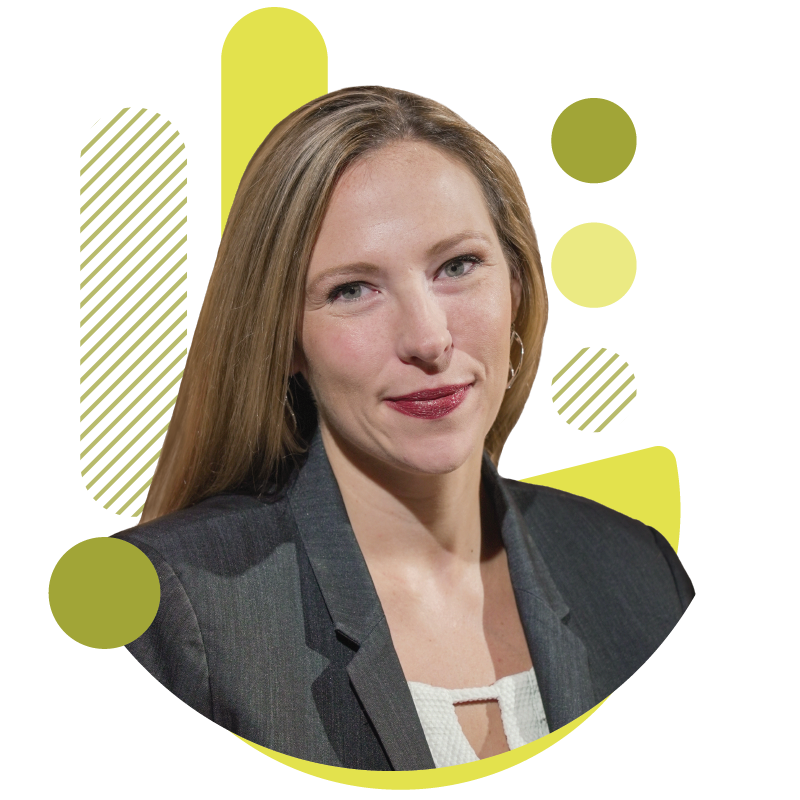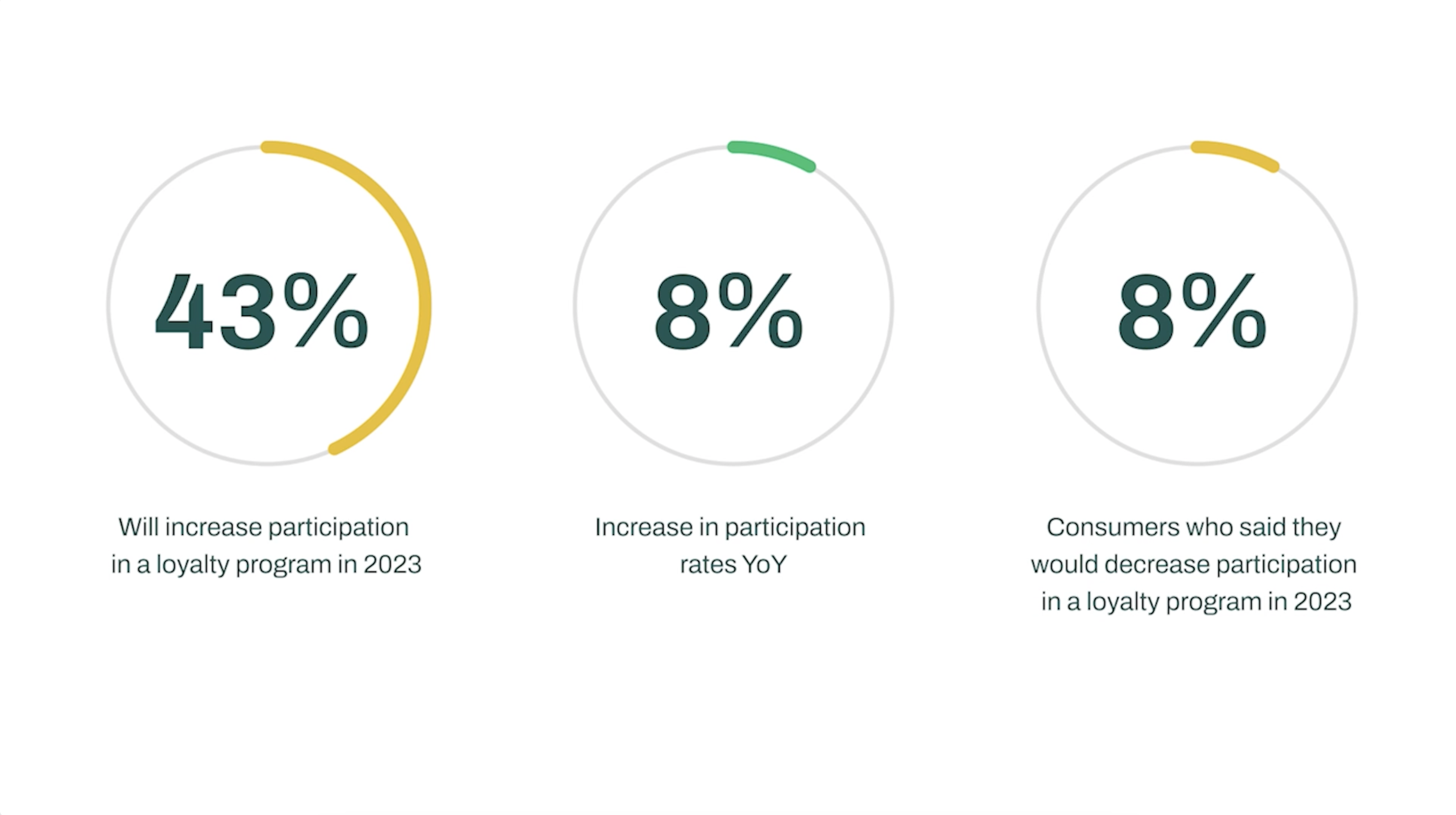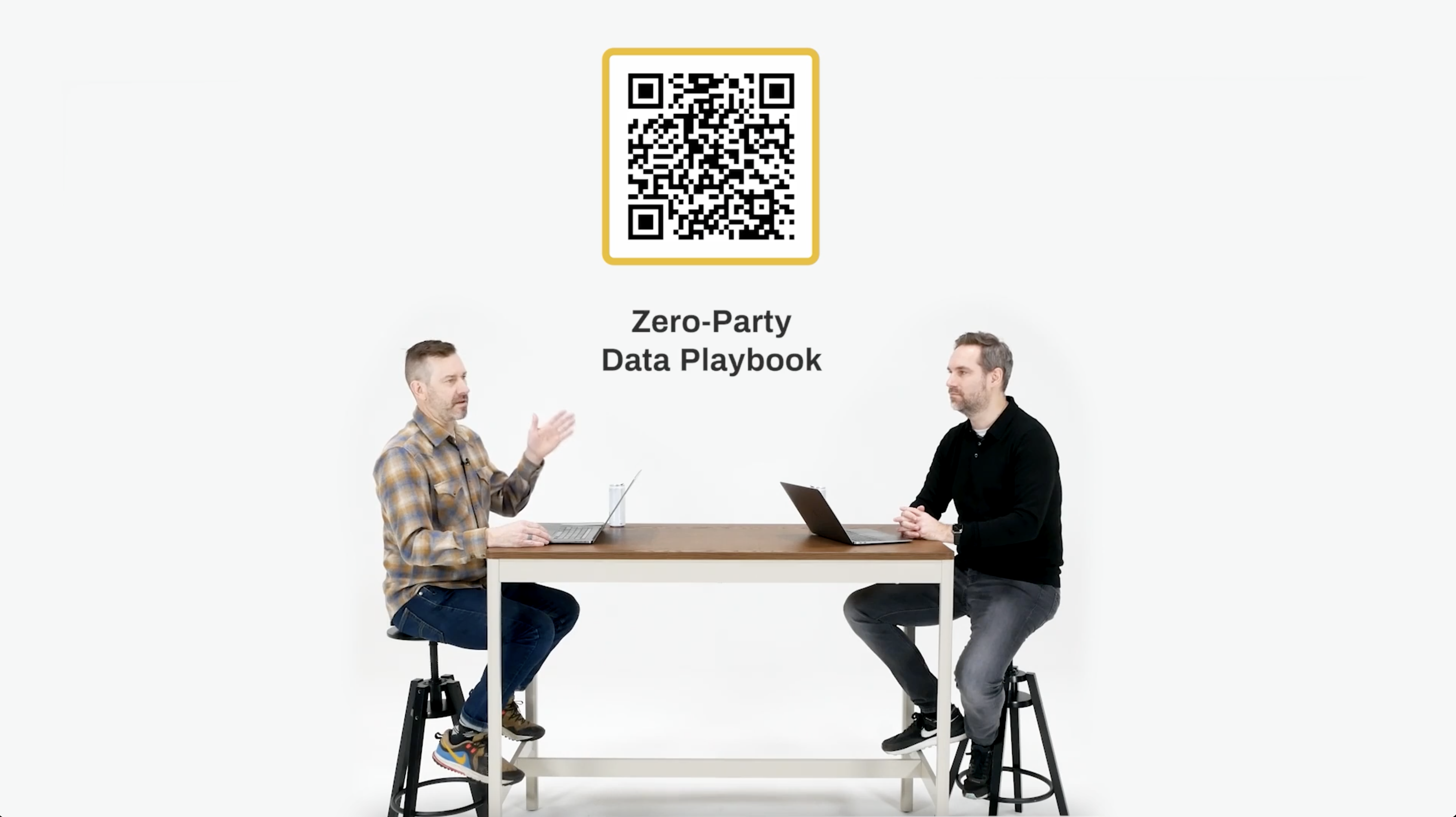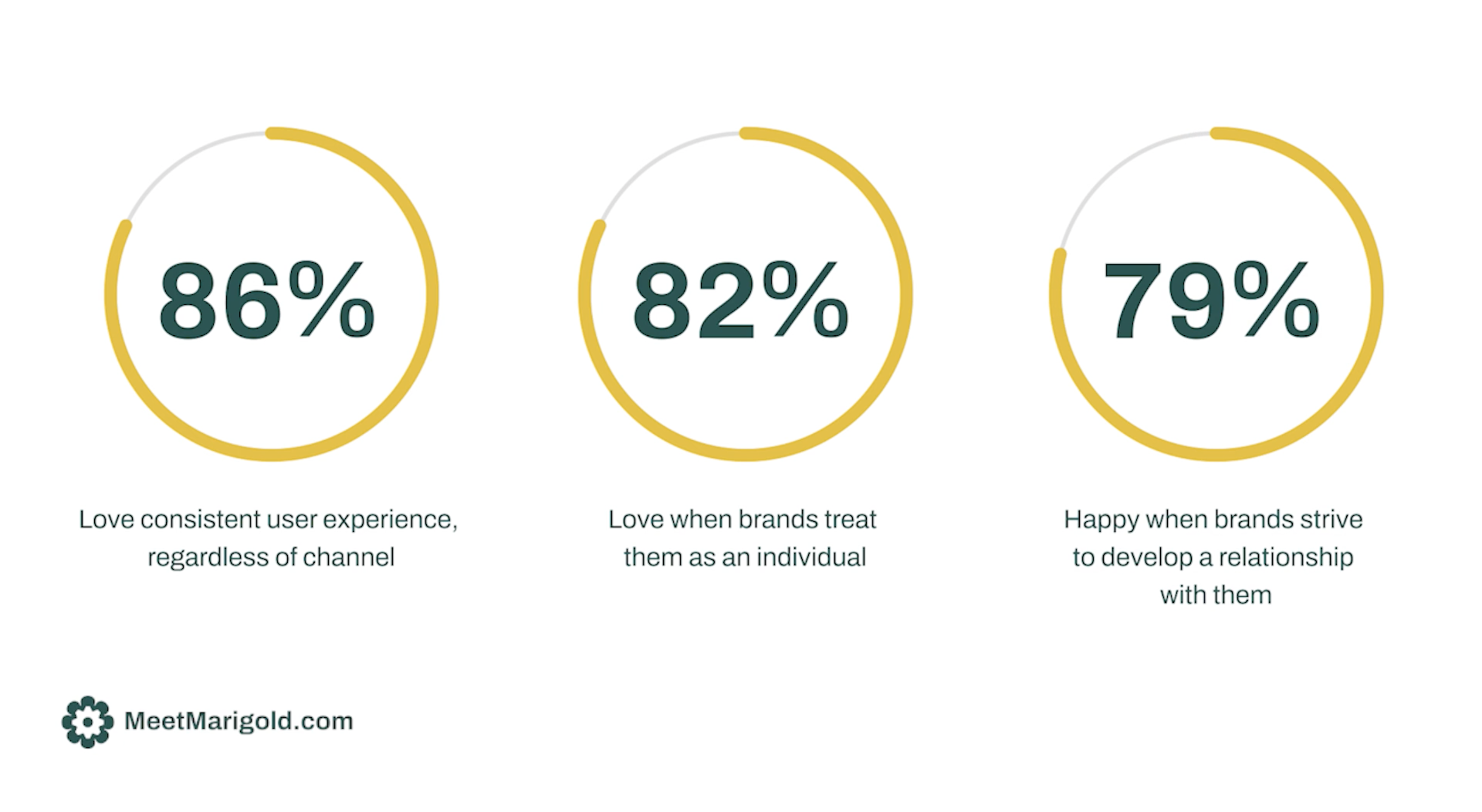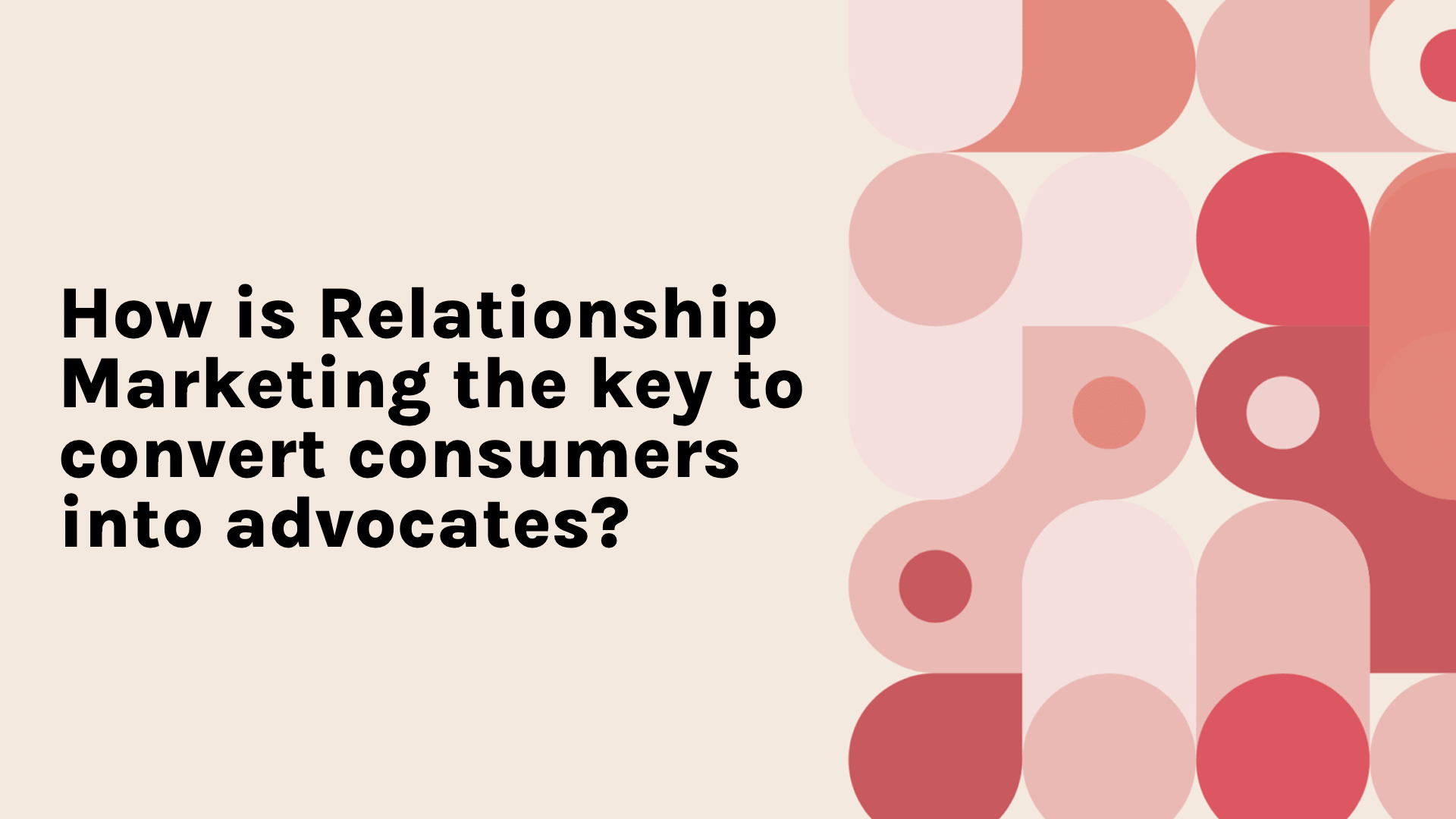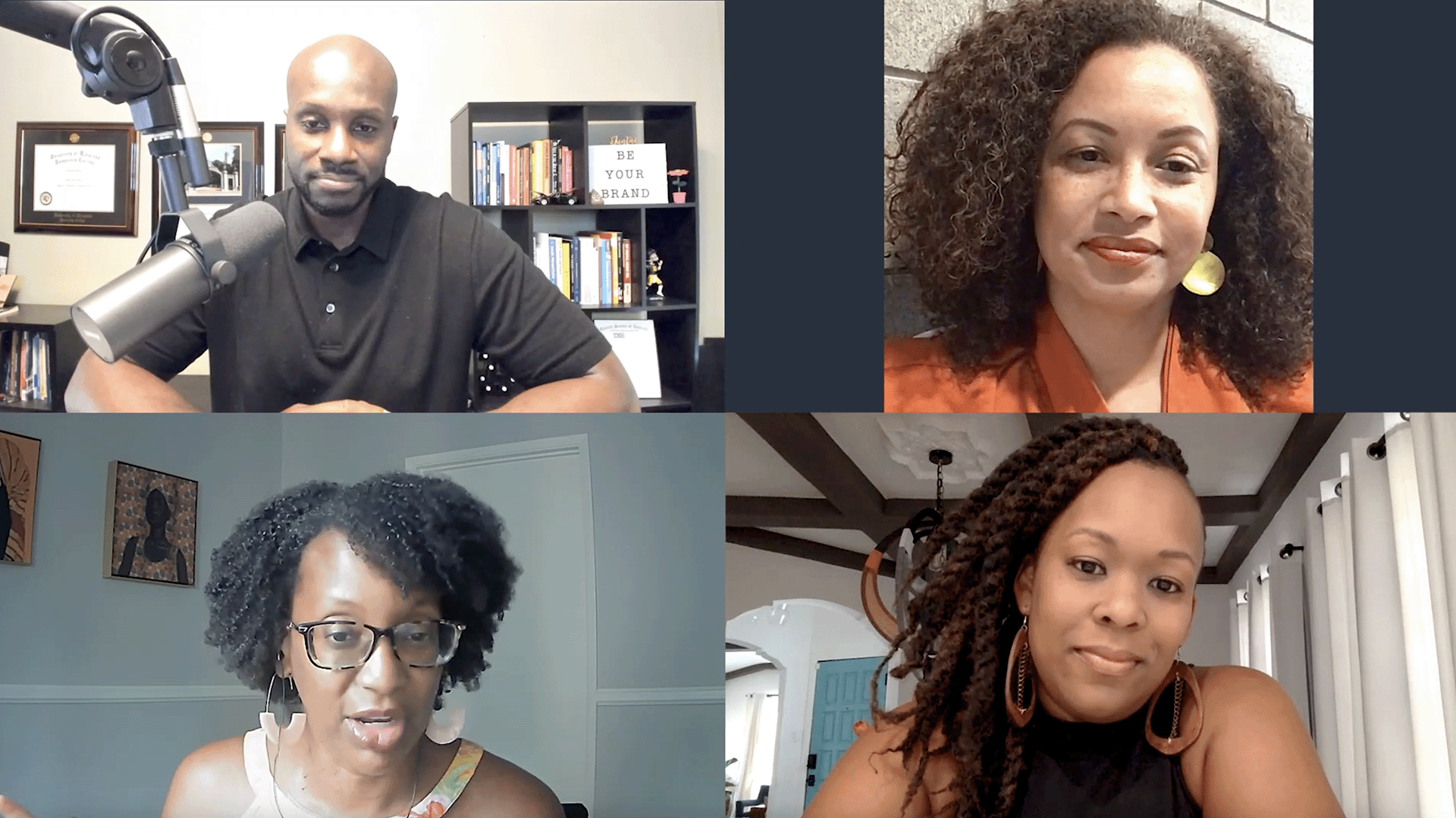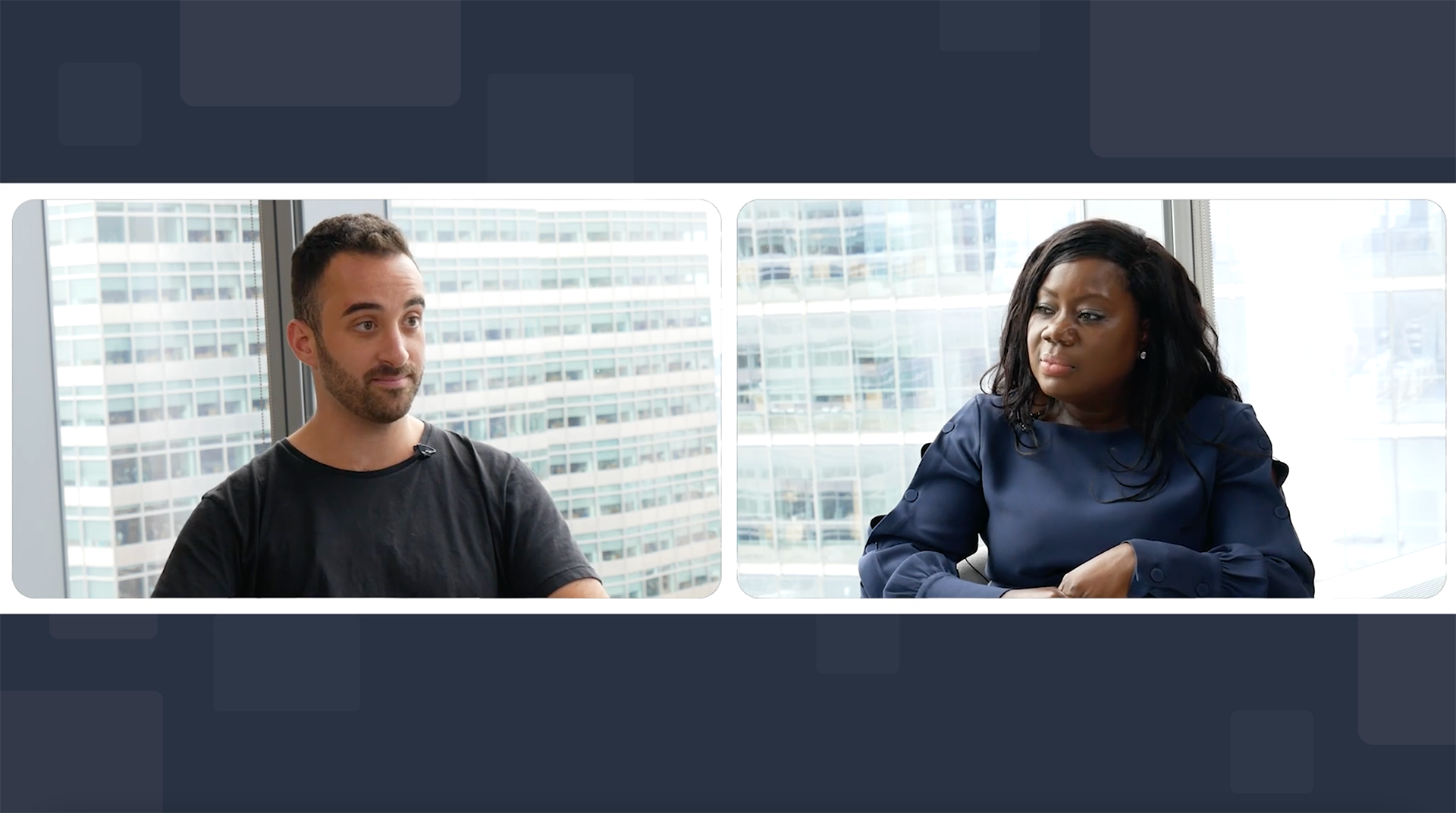Why Del Taco's Epic New Loyalty Program Aims To Go Way Beyond Points For Purchase
- 0.5
- 1
- 1.25
- 1.5
- 1.75
- 2
Tim Glomb: Do you ever have one of those days where you're just totally and completely dropped the ball? That's me today. I'm supposed to be interviewing Erin Levzow at Del Taco in Milwaukee, but I overslept and missed my flight. I am still in Denver and I bet she's walking into the studio any second.( silence).
Well, I'm here. Where's Tim?( silence).quote-unquote
Tim Glomb: And I bet that's Erin. Yes, it is. I'm sorry. I missed my flight.( silence). There's probably one thing that could save today. Erin lives in Milwaukee and unfortunately, there's no Del Tacos there. I'm going to bring her lunch. The Del Yeah Rewards program allows you to browse the entire menu from your phone. You can scan a QR code, you can redeem free offers, or you can even order and select pickup, delivery or drive- through, which is what I'm going to do because I'm in a hurry. Now, what will Erin like? Definitely guac tacos. Two of those.( silence). Cut fries. Two of those. Nice. Order complete. Next stop, Milwaukee through Denver International Airport. Let's go. Well, I ordered on the app to make it quick because I'm in a hurry, but the great news about the app is you always have your scan at location QR code. You can use that at the drive- through or at the counter, so you make sure you get those points in the Del Yeah Rewards app.( silence).
Speaker 4: Your order is ready. I got your order.
Tim Glomb: Thank you buddy.
Speaker 4: Okay. Take care.
Tim Glomb: Precious cargo. Let's get to Milwaukee.( silence). Erin, I am so sorry I am late, but I brought Del Taco.
Erin Levzow: Well, I can't be mad if you brought Del Taco.
Tim Glomb: What have you been doing?
Erin Levzow: Oh, this. I have many talents.
Tim Glomb: Clearly. This is awesome. All right, well here. I brought you some fries. Some fries.
Erin Levzow: Oh, thank you.
Tim Glomb: I got you a quesadilla. And hang on just, a taco.
Erin Levzow: Oh, my goodness. Thank you.
Tim Glomb: Yeah, I mean, I am hungry. This is awesome. Thanks for... You brought tacos. I brought tacos. They're pretty good.(silence). Well, welcome back to Signals. I am Tim Glomb here for Cheetah Digital. And today I am with Erin Levzow who is the VP of Marketing Technology at Del Taco. Erin, thank you for having me.
Erin Levzow: Of course. Thanks for having me.
Tim Glomb: Look, let's dig in here. Del Taco. Great company. I, personally, love it, but tell me, what is the Del Taco business model? What's the footprint? What's the high 20,000 foot overview of Tel Taco?
Erin Levzow: Yeah. So over 600 restaurants throughout the US in many different states. We are an old age brand at this point. We've been around for a very long time. We serve everything from tacos to our amazing crinkle cut fries to our Double Dell Cheeseburger, which is outstanding. Our churros are so good, our shakes are... There's something for everyone there and you can get it any way you want it. Like through the drive through, pickup, curbside, delivery. And it's just outstanding.
Tim Glomb: How do you differentiate in kind of the taco world space or even in QSR, what's different from the quality of the product or what do you do differently?
Erin Levzow: So we cook our food fresh. So we slice and dice. Our cheese comes in blocks and it's graded in the restaurant. You don't find that in QSR hardly anywhere, right? That is fast, casual quality that is the quality that you expect when you come in and someone says," They cook it fresh. But not in QSR." But we do that and that's really exciting and it makes our food just like you can tell the difference when you taste it. And it makes us, it sets us apart. As well as we like to have fun. It's not just tacos. It's not just burgers. There's so many different things. And that's why I say my kids one doesn't like tacos, one doesn't like burgers. It's perfect for everyone.
Tim Glomb: Oh. So you can bring the whole family in, the conflicting taste buds. You have a little bit for everyone. And you-
Erin Levzow: And you can get it all day long. So breakfast, lunch dinner, late night. After a great night out, there's nothing better than Del Taco.
Tim Glomb: I like that. I like that idea. Okay, cool. So let's talk a little bit about, we're going to talk about your loyalty program, the Del Yeah Rewards program that you rolled out. But before we get into that, how was Del Taco engaging consumers pre this rollout? What was the-
Erin Levzow: So we did have a mobile app and the mobile app was focused just on offers. So the only reason you would use it is if there was a coupon in the app that was enticing for you to use and may have been someone who was coming anyway, but now we just gave them another coupon or another offer to use. It didn't encourage people to continue using. It didn't encourage in restaurants. We're looking at driving those transactions or driving those average tickets. And it didn't encourage either one of those. What it did was say," Here's our portfolio of coupons and you can use anyone you want." So that's all that existed prior to Del Yeah Rewards.
Tim Glomb: Got it. So probably not a lot of intelligence for you either. I mean, you're giving people coupons for things they probably were going to buy anyway. And the insights were," Oh, they redeemed another coupon." So not a lot of intelligence.
Erin Levzow: Yeah. We didn't know... Also like it didn't encourage someone to have to check in to use that offer. So if there wasn't an offer that was enticing to them. They could still be coming to Del Taco, but we didn't know.
Tim Glomb: Okay. So let's talk about why you built a new loyalty strategy. What were the challenges that you were trying to solve and what ingredients did this loyalty program must have?
Erin Levzow: So good question. Loyalty. The word loyalty gets a bad rap. So the word by itself, people think loyalty, they think old school punch cards. Come in nine times, get the 10th free. Why would I give you a 10th free? Does it encourage you to come more often? Does it encourage you to come every week? It just says like," Whenever you come, you might get another free visit." Not that exciting. So we've seen other QSR, we've seen other companies roll out loyalty. What's working, what's not. I spent 10 years working in Las Vegas looking, and you want to talk about loyalty programs. Look at how they tier up someone and how they encourage you to spend more money. And I'll be honest, I've spent a lot of money. So I really studied a lot of those programs, looked at what's working what's not. And for Del Taco, it made sense. Not a punch card, but how do we really encourage, with extrinsic and intrinsic motivators, someone to want to come more often, to earn up? And there's something to be said for having that next tier level. That-
Tim Glomb: Sure.
Erin Levzow: You're not Queso anymore. Now you're Scorcho. Then you're Inferno, then your Epic and you get to build all these tiers, but there's still points that you can redeem. And not just a couple things that you redeem for. Like some of our competition, they'll just have like one or two things. We have a laundry list of things that you can redeem for. So you can choose anything from our Del's Dollar Menu item all the way through a full combo Epic meal.
Tim Glomb: Wow. All right. So not that you were mirroring the airline industry, but it sounds similar to that. You're always aspiring to fly more to get to that new tier, to get that extra level, so to-
Erin Levzow: Yeah. You don't want to look at it and go, just look at your competition in your industry. And doesn't matter what you're doing. You never want to just look at it and go," Well, what are my key competitors doing?" You need to look outside our industry because customers don't compare us to like our loyalty app to like another restaurant's loyalty app. They compare it to everybody's loyalty program. Like," I earn more points doing this," or"I earn more points doing that." So we looked at the Southwest, the American Airlines, the Vegas loyalties, and really leveled up our strategy based on that.
Tim Glomb: That's cool. So you really, I mean, it's about achieving what's the best possible. Not just," Hey, my competitor's doing this. We got to do that better." Great. I love that because right now, especially in the QSR space, even the big burger chains have gotten back into loyalty, but it's not to your point. It's not loyalty. It's this mechanism of discount and one for one, and giving away free things that they're probably going to buy anyway.
Erin Levzow: Yeah. And thinking about it, not just as what's best for us as a company, but what does our consumer want? And I think sometimes when you look at some of these other loyalty programs, it's what's best for the company. And that's good, that's positive. Like we all want that, but what does the consumer want? What do they want to engage with? They don't want to just be shoved messaging all the time. They want messaging that's relevant to them when it's relevant to them. Years ago, we used to say right message, right time, right place, all of those things. But now it's even more relevant than it was back then, because we can actually do it.
Tim Glomb: Yeah. You can actually get the data. And that's the key to relationship management and customer engagement. I like to say that customer engagement, formally known as loyalty, is really what we're talking about here. Because you can engage people even before they get into a program. If somebody's constantly purchasing from you, you should reward them for that. So that's relationship management. Let's talk about that. What are your plans? What are the real goals for customer engagement? Like where will this go? You just launched and by the way you crushed your goals, right?
Erin Levzow: Yes. Yeah. No, we just launched September 9th. We did our soft launch where we transitioned our current customers over and then September 16th we nationally launched and it went really well. And so we've been very impressed with the numbers we've already hit and the interaction and engagements we've seen with people not just coming once, coming multiple times already. We're sending them on journeys, which is exciting. After one purchase, they get this offer. After two purchases... So it takes them on a journey and then there's multiple journeys layered in, based on their behavior in the future. There's so much planned out. When I talk to folks, they'll go," Well, you launched. So now you're done, right?" And you're like," No."
Tim Glomb: Just starting.
Erin Levzow: Like," This is just the beginning." We've worked all that time to get to the starting line. And so now we're there and the sky's the limit. So we're talking gamification, the different types of challenges, understanding the consumer. And I asked someone the other day, they go," Well, what can you really understand? What kind of tacos they like?" And I was like," Oh, my gosh, there's so many different idiosyncrasies to this." You know when they come, why they're coming. We're one of the only concepts that have breakfast, lunch, dinner, late night. All these different day parts. So understanding why the consumers coming when, and also what day of the week or time of the month or because it's an event. Do they come for Fiesta packs? Which are outstanding for the family. Or do they just come because it's their hidden love of like a 2: 00 AM snack, which is kind of-
Tim Glomb: Sure.
Erin Levzow: I love that too.
Tim Glomb: I'm with you.
Erin Levzow: So understanding all of that is what helps us get relevant communications to them because they're not going to be interested in a breakfast item if they only ever come at late night. They're probably still sleeping at breakfast time.
Tim Glomb: True.
Erin Levzow: So there's so many benefits to understanding that data and being able to use it the appropriate way, so we're not just blasting someone all the time. And then the other thing is taking them on these progressive journeys that help them level up and tier up and keep them engaged. Because again, we want them to come more often. We don't want this to be something they just used because they had already planned on coming. We want this to encourage them to come back and continue to want to come back.
Tim Glomb: Yep. Well, what's interesting is you're talking about truly personalizing the experience for every customer. So if Tim only comes at 2: 00 AM, don't bother him with breakfast or maybe suggest it once, but don't push it. Whereas the batch and blast mentality most brands have is," Okay, get everybody to let them know about breakfast." Well, not everybody needs it. But let me ask you about the aggregate versus individual insights, because you're also getting aggregate insights that can help inform better marketing, better engagement, better in- store experiences. How do you view the aggregate versus individual? Do you put like two different hats on when you do that? How do you manage that?
Erin Levzow: It's a fair question. And you do have to manage aggregate versus individualized, but at the end of the day, personalization, if not done in a mass communicative way, built out to address the masses through personalization, isn't feasible to continue. Unless we can build that AI, the different bots in to actually do some of that machine learning for us, it's not going to be real personalization or it's going to be very time consuming. So you have to look at the aggregate because of that. And then also we do a lot surveying. We understand our guests at a very high level and then a very deep level. We let them tell us word for word how they're feeling, but also then start to bucket those survey results into different channels that help us with product development, research and development. It helps us understand how our app is trending, like the actual software itself. So we do all of that and then we're able to take those key learnings and put that towards our calendar and our plans for the future.
Tim Glomb: You're basically a data company that makes tacos.
Erin Levzow: Yes.
Tim Glomb: Okay. I love it. I love it. And to back that up, obviously when I brought lunch, I got an email shortly after that said," Tim, tell us about your experience." And so personalized. It told me which Del Taco, the address and the time that I bought it. So you are truly personalizing and truly creating that feedback loop. And that's incredibly important because, you're right, some would say," Oh, you launched a loyalty program. Good luck. Now just let it run for 12 months." But you're constantly digging into the data, which is huge.
Erin Levzow: Yeah.
Tim Glomb: I want to talk about the multi- channel approach of marketing these days. You've got email, personalized email into my inbox. It's a sacred place for me. SMS, even more close. That's where I converse with my family. How important is it that you plug in your engagement and relationship management strategy across all the channels these days?
Erin Levzow: Extremely important. So when you think about messaging and channel management, you have to understand the consumer and what channels they want to be spoken to because, like you said, your email or your SMS might be very personal for you. You don't want those message, but you don't want them to stop communicating with you. You just need to understand where they want to be communicated. So preference centers are very important and we've seen those for years, but they didn't always tie things together. It used to be. Like if we go on our way back time machine to like what marketing used to be, you'd have a calendar and you'd be like," This is our email calendar. This is our text calendar." And you'd have all these calendars, but you didn't have an understanding of like," If Tim's on this list and this list and this list, how are you making sure you're not just blasting him?"
Tim Glomb: Bombarding. Yes.
Erin Levzow: And I'll be the first to say, not all companies have this figured out because I get some text messages every single morning. And I don't understand. And this is nothing against one casual dining company, but they text me every morning and they're like," Free dessert for you." And I was like," Don't tell me about free dessert in the morning because I have self- control in the morning. And in the morning you need to tell me about how, talk to me about your weight loss menu." In the evening, definitely, I'm all in for dessert. But why would you text that to me in the morning?"
Tim Glomb: Interesting.
Erin Levzow: Anyhow, you need to understand on a broader scale. So what used to be calendars, now is really like a messaging architecture. It is, if the customer wants this, then you send them the message here. If they want this, then you send them the message there. If I send them this message, don't send them this message, this message or this message.
Tim Glomb: Sure.
Erin Levzow: So it becomes almost like SQL queries for messaging. And then everybody's on a different journey of messaging. It's not just," Everybody gets a taco today." It's," Here's when you get your message and that might be a little different than when you get your message." And I think that's the big change that has to happen and making sure companies understand that the calendar that used to be, isn't what you want anymore.
Tim Glomb: I had a great mentor and friend, Tom Flanagan, this Leo Burnett guy who always said," The customer doesn't give a bleep about your marketing plan." And I think that's what you're getting at, is they want their journey on their time and the right moment for them. Not," Hey, we're sending an email Monday at 8: 00 AM."" 8: 00 AM, when?"" Ah, Mountain, I guess." So, all right. Great. What advice would you have? You've been in technology a long time. You've bounced around. You've been in some great places. You launched an amazing program. I'm going to say it, you're a bulldog when it comes to like getting things out the door. And we've known each other a little bit here. You run a tight ship. What advice would you have for somebody who's watching right now going," Yeah, I hear you, but all that's too tough. And I don't know if the payoff is worth the investment of time, energy, resources, et cetera." What advice would you have for them if they're really trying to build their brand, really up level their relationship management and get a competitive advantage in their industry, whichever it is?
Erin Levzow: Well you got to start somewhere to get somewhere. That's with anything. I was listening to Mel Robbins the other day, the motivational, I guess she's considered a motivational speaker. Just very real. She has The 5 Second Rule which is before your brain can say," It's too tough or I don't want to do it, you're like 1, 2, 3, 4, 5, go. And you just get up and go. Don't question it, just go." And she talks about it, like getting out of bed in the morning to work out. And I use that because I don't want to get out of bed. I don't, like," Oh, my gosh, I want to sleep." But I'm like," Just get up." If I can just get up, then if I get downstairs, then I'm closer to working out. And then finally I work out. When I'm done I'm like," That was only 30 minutes of my life." Like," Why was that a big deal?" So you have to start somewhere to get somewhere. Don't let those thoughts cloud you. Even if you're starting with," All right, let's just build out a little bit of a plan" or" Let's look at what we have and do an audit." Do something, but don't do nothing because then you're just like-
Tim Glomb: Complacent and just yeah.
Erin Levzow: Yeah. And in technology, the great thing about technology is you don't have to have years of experience because everything changes every day. So you have to have a learner methodology. You have to want to learn and stay on top of trends because that changes all the time. Then I would say that you have to be feisty. You have to be willing to question everything. So as you know, I ask a lot of questions. And I like to dig deep on understanding," How does that work?" It's not enough for someone to say like," Well there's machine learning." Okay, tell me how the machine learns. Tell me what queries are in the backend. And you have to have that base level understanding. And I will say, I know enough to be dangerous. And then my type A comes out and that's the, like," Let's put a plan together and check ourselves towards the plan." The plan, I call it, preparing to be spontaneous. Once you prepare, once you've done all your homework, be ready to pivot because Lord knows nothing ever goes as planned. Like nothing. And when I talk to people, I say like," We launched our app when we said we were going to launch our app." And people are like," Okay, so what?" That's huge.
Tim Glomb: Yeah. That's a big deal.
Erin Levzow: That's insane that we launched our app when we said we were going to launch our app. In technology, that doesn't happen. In QSRs, in any concept that has an app, it's usually like," We're going to launch in January." And then like a year later, you're like," That was our original date. But these things came up and we pivoted." The fact that we were still on time is just like earth shattering for anyone. And I keep telling people who are not in our department that, and they're like," Oh, that's interesting." But it is a really big deal. But you prepare so that when things pop up, you're like," All right, blocker, not a blocker. Where is it going to fall?" Because stuff's going to break, things are going to go awry and you have to be ready and prepared to fix them. So preparing to be spontaneous.
Tim Glomb: I like that. And there's so many people watching, chuckling right now going," Yeah. That's like the 15 things I've rolled out in the last 10 years. Nothing went to plan." So congratulations on rolling out at the right time. And I think this is a good place for me to ask the question, how did you go about finding the right partners to build this program? Like how exhaustive was that process? And again, anyone who's watching, who may not know Cheetah or who know you, would probably want to know. Where do you even start to find the right technology partners to bring all of this data and personalization to life?
Erin Levzow: That's a good question. You have to do a lot of homework and it's never as easy as you think it's going to be. It's never just like," Oh, I like them. Let's go with them." It is a lot of homework, a lot of studying, a lot of understanding things. And with any partner I choose, it comes down to," Can they do the job? Are they going to grow with us? Are they scrappy with us?" because we don't want to just, we don't want to be a small fish in a big pond. We want to be important. And then is there a relationship there? Can we have frank direct conversations because as you know, I'm pretty direct.
Tim Glomb: Oh, yes.
Erin Levzow: And then finally budget. Everybody always talks to me and they're like," Well how does finance play into this?" Well, that's huge obviously. You need to be able to afford it. So when we look at all the partners, the one thing we loved about Cheetah was that it encompassed a lot. We started to be able to, for years we talk about this, the quote-unquote "omnichannel," which I hate that word. Well, on my end, I care about having all the things with Cheetah because of time and resources. I don't have to have a team of 12 managing this. We can manage it under one umbrella with this one partner. And I don't have to call 12 other partners to do that. And that's really enticing for us because we're not 10 times our size, we're a little over 600 restaurants, which is a good size, but it doesn't mean we have unlimited budget either. And so when you start putting lots of players in the space, that's when you need more resources to manage, you need more money and you need to be able to well make time that doesn't exist. So with Cheetah, we're able to do all these different pieces under one system, which is really, really exciting.
Tim Glomb: I mean, look, that is the nature of the Customer Engagement Suite and the reason that we've built all of our technology on one platform, from acquisition of Cheetah experiences, finding new customers or engaging and learning more about your existing customers all the way through our EDP engine, machine learning, the AI you mentioned, loyalty, messaging, SMS in- app while everything. That is the CES promise. And it's great to hear it from a client saying," Yes, it's all on one roof." And a lot right now watching have marketing cloud, which really is just a stitched together, cobbled together, as we say, disparate endpoint solutions that we're all acquired and put under one invoice, but they're not under one roof and not under one technology. So it's great to hear that about Cheetah. So let's move into, how do you measure success? You talked about, you got to find a resource, you got to find somebody that can build the plan, somebody that can execute, somebody you can partner with, and you got to do it within budget. How do you measure success on a program like this? Is it engagements? Is it enrollments? Is it revenue? How are you going to measure success?
Erin Levzow: Well, it's all of it. So there are the tactical success measurements like downloads and registrations and all of that, which is important. The acquisition piece of it. Then it's time spent in the app. Then there's the emotional piece of it, which is, is it encouraging people to come back? Are they interacting with things that aren't just," Hey, I came and spent money with you," but are they interacting with the gamification of it and things like that? With the emotional attachment to it. Has it built more brand equity for us and brand love and brand promise through that? So there's all of these different things. And the best way I describe it is when I teach my team about analytics, you never take anything at surface value. So like looking at website analytics," Okay. This many people were at our website. Okay. How many fell off? Where did they fall off? What did they do?" And people go," We can't measure by all these things." Yes, you can because it tells a story. We need to figure out what the customer is telling us and then react to it. And so it's not good enough to just be like," I have this many downloads" or" I made this much money." It's," How did we do it? What's the story they're telling us and how can we continue to get better?" And everything should be about how are we improving? How are we getting better? Because again, it's not a one and done. We didn't just launch it and we're done with it. If we did that, we'd still have websites from 1980s. We are constantly improving. We're constantly looking at all of the different analytics. The emotional, we work very closely with our, Tom Johnson is our director of Consumer Insights and he's amazing. And he's constantly coming to us with research to help aid in that progress. And so working very closely together to continue to be better. So if I told you that there's one report, that's like here. Did we do well? Or did we not do well? No, it's a story. It's a story that we're telling with all the analytics talking to each other.
Tim Glomb: Got it. So you got to look at it holistically, but you also got to dig in. I like it. I like it. Well, look, we've spent a good bit of time. You've told a great story. Of course everyone can download the app. And you get two free tacos when you download Del Yeah Rewards program.
Erin Levzow: Yeah. Mm-hmm(affirmative). Two of our best tacos. They're outstanding.
Tim Glomb: Cool. So go get your app, download it. Get your free tacos, build your points and get into the Epic tier like I am, because I'm constantly there.
Erin Levzow: Nice.
Tim Glomb: But I have... I'm going to close out with some rapid fire, quick questions. 60- second answers or less.
Erin Levzow: Okay.
Tim Glomb: First one is, zero- party data. It's a buzzword. It's created recently. A lot of marketers are saying," Yeah, it's just a buzzword. Doesn't mean anything." Or does it actually like differentiate? Is zero- party data a real thing?
Erin Levzow: It's a buzzword. Exactly what you just said. And buzzwords... I feel like I have to talk fast. I have 60 seconds or less. Buzzwords, frictionless, omnichannel, big data. All of these things as they've come up, we're all like," Oh, we should really care about this now." We always cared about it. We just called it something new. So data is important. Data will continue to be important. Of course, zero- party data is important. We just now have coined the phrase. So it'll continue to be important. We absolutely should all have our own data. That is not new news.
Tim Glomb: Cool. Well, You talked about having your own data. Privacy and personalization is a conundrum right now. Consumers want more privacy than ever. However, they want more personalization than ever. Is this like a new mindset and a new skill and trait that marketers have to deal with and figure out this balance? And how important is that balance?
Erin Levzow: It's important to pay attention to, but privacy, again, people want privacy only if you are targeting them wrong. If you use the data for them, studies show that they are okay with it. They're okay with sharing with you as long as they know you're using it for good and to personalize their experience. If you misstep on that or you don't personalize it, then they're upset. Then they don't want to be tracked and all that stuff. But it's going to continue to be a big deal. And of course we're going to pay attention to it. Just make sure you're doing it right.
Tim Glomb: Use data for good. I like that line. That's what we preach at Thinking Caps our podcast. I love that we're on the same page there. Okay. Privacy regulation. Legislation here in America. You're an American- based brand. How big of a concern is that as being a marketer? Are you worried about legislation and privacy and restrictions?
Erin Levzow: Not necessarily worried. We pay, again, pay attention to it. We've always paid attention to it. Back five or six years ago, we would work with like the White Ops team to understand," All right, what's going on? What are we caring about in data? What does the White House have to be involved in? Like what don't they have to be involved in? Or what could we create mandates for?" And then be like," Hey, guess what? We created them already as a industry together." So again, pay attention to it. Not necessarily worried because what I think happens is back to the last question, people want that personalization. And once they feel like the companies can't do that for them, they're going to ask for it again. It'll change things again.
Tim Glomb: Cool. Last question, advertising. It's in disruption right now. There's a whole ecosystem of data brokers and sellers and matchmakers that may go away because of the impending legislation or rules or Apple just not letting you make matches with devices et cetera. Do you think there is going to be a giant tsunami or earthquake in the advertising industry in 2022?
Erin Levzow: I don't. I think that it's a lot of threats, but no real, like nothing really has happened. We have a lot of threats sitting, looming, but like no big changes have been massive in upheavaling this. I think that we'll continue to have appropriate targeting that we can go and communicate and engage with our customers. But again, it goes back to, we pay attention to it. We watch it. We see. I mean, they keep saying like," It's really going away. This is really happening. This tracking is really coming. And this is really going away." But has it? It hasn't. So crosstalk we keep paying attention.
Tim Glomb: I guess time will tell on that one. Well, this has been great. I appreciate you taking the time. I'm sorry I was late. The taco was great and I need to get back to Denver to get more tacos because now I'm hungry after this interview. Thanks for doing it. You're going to see Erin all over the place. Look at all the trade shows, all the different speaking engagements you are going to see here on stage. You're doing a world tour now.
Erin Levzow: Yes and working. It's great.
Tim Glomb: Yeah. Well, congratulations on the rollout. We'll see you next time in another session here at Cheetah Digital.( silence).
DESCRIPTION
Loyalty made a huge comeback in 2021 with quick-serve restaurants. From the big burger chains to the local mom-and-pop shops, customers are being offered points for dollars spent. But is that building long-term relationships? Sure, everyone loves a freebie once in a while but Del Taco’s new Del Yeah! Rewards program aims to drive truly personalized and valued experiences for guests that go way beyond points for purchase. Join Del Taco’s Erin Levzow, VP Marketing Technology, as she explains the heart of their customer strategy, how the program's engagement will go way beyond points and why an omnichannel approach is core to true relationship management with your customers. Powered by Cheetah Digital’s Customer Engagement Suite, customers can engage with the brand today across multiple channels and through their rewards reach EPIC status. BTW, the Del Yeah! Rewards app also won App of the Year for B2C at Impact21! Come hungry for learning more about scalable loyalty strategies!
Today's Guests
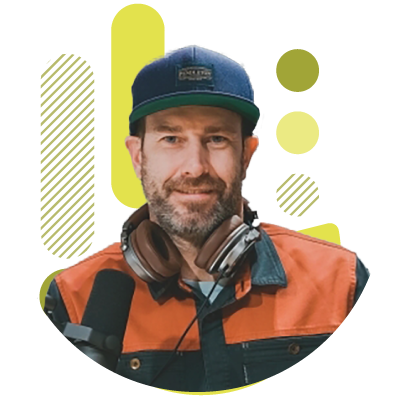
Tim Glomb
